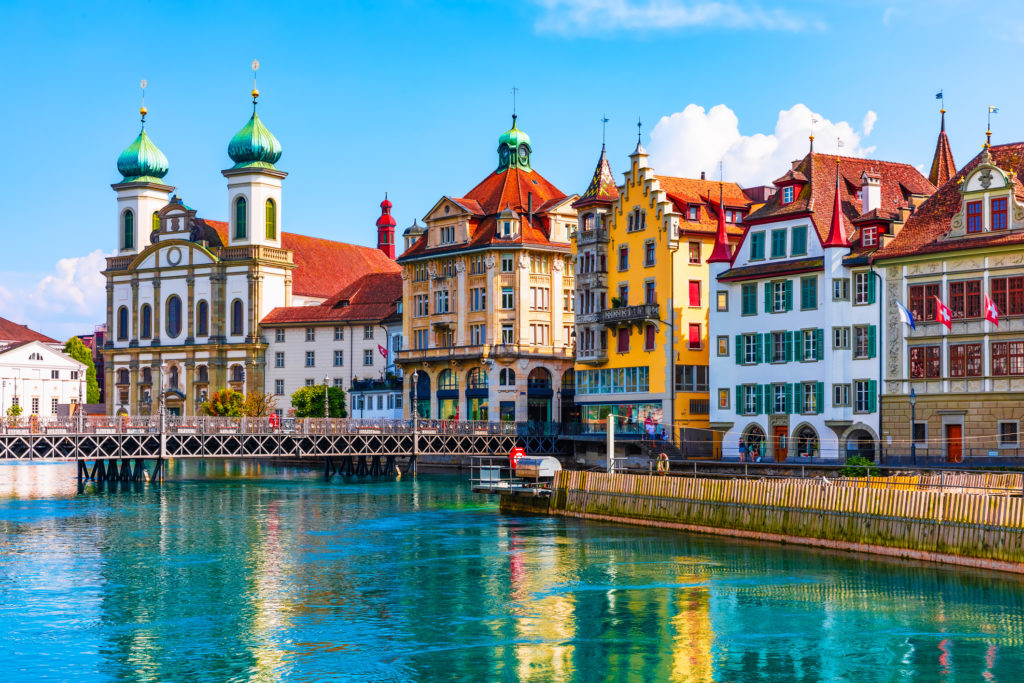Grüezi! Have you ever arrived to the German speaking part of Switzerland thinking they spoke traditional German, but got really surprised? In this post, we will tell you the everyday phrases you need to know if you are travelling the country or have just moved in.
Switzerland is a very multicultural country, even among Swiss themselves. It has 4 official languages: German is spoken by around 62% of the population, French by 23%, Italian by 8.5% and the Romance language Romansh, spoken by only 0.5% of Swiss.
However, the high German listed as a national language is not really the spoken on the streets. High German is used in education, signs, announcement and most communication media. But what Swiss people really speak is their own dialect, called Swiss German.
Swiss German itself is very diverse, since every German-speaking canton has its own distinct way of speaking the dialect. But I’ll tell you all about that in another post.

So, if you have just arrived and are confused of why the German you’ve learnt is not the one you hear on the streets, it’s because it’s simply not spoken! (well, of course it is. Just not by everyone, like in Germany). Swiss people can perfectly speak German, they just don’t like it that much, and they also have their own dialect they use with their friends, family and acquaintances.
If you are trying to learn the local dialect to meet new people, make some friends or order coffee (or just because, because learning the local language is always the right thing to do!) then take a look at this list.
How to greet people
The most formal form, (even if it doesn’t sound formal at all), is Grüezi or Grüezi Mittenand (hello everyone) if it’s addressed to more than one person. This simple word confused me so much at the beginning, I actually spent my first month here saying Biitsi instead of Grüezi, until one day I saw a door mat that read ‘Grüezi’ and had a mindblowing moment (I also felt really dumb if you ask me).
But enough with the anecdotes. If you decide to do some hiking, it is part of the hiker’s code to greet other hikers, so don’t miss this opportunity to practice your Grüezi on the Swiss wanderweg.
More informal forms are Salut (yes, from French. You’ll see more words derived from French a lot) or a simple Hoi, which are reserved for friends or people you know.
As a rule of thumb, I use Grüezi regularly and barely use Hoi, unless I get greeted first with one or encounter young people I already know.
You can also enter saying Morge! (good morning) if it’s before 10 am.. Because by 11 some Swiss will already be having lunch!
How to excuse yourself
Entschuldigung is the most official way to excuse yourself in any German, but here in Zurich they have opted for a more international sory, but with a softer rather than a stronger ‘r’. This is funny because I thought that’s how Germans would say it, but instead on the streets of Berlin the internationalized Sorry was pronounced like in English.
Again, borrowed from the French speakers, a pardon or an excusé (without an accent on the last e), they are the most common and used on the streets of Zurich.
A word that is definitely a ‘joker’ word would be bitte. It’s not exclusive to the Swiss dialect, it’s in all Germans, and I love it because it’s good for everything! When you are not quite sure what to say, say bitte!

How to say thanks
You can of course use danke, but make sure the k sounds as if you were clearing your throat, even adding a very delicate r. Danke schön is not really used as opposed to Germans, but you can rather say danke viilmal.
Once again and borrowed from the French-speaking neighbours, drop a delicate merci or merci vielmal [filmal], if you are many times grateful. This can be considered a bit more formal.
How to say goodbye
There’s two (or three) most used ways of saying goodbye:
Adieu, but pronounced [adee], as if you’re too lazy to pronounce all the letters.
Schönen Tag, or its reduced and informal version Schöne, used by the Swiss. You can also leave saying Schonen Abig! (good evening, in Swiss)
An internationally accepted Ciao. It is best to combine a Ciao or Adieu, with a Schönen Tag at the end to leave no doubt about your mastery of the subject.
The typical German Tschüss is not really used, but if you ever say it won’t be incorrect.
Formal vs. Informal
This is a very broad rule and you should not take it strictly, but I’d say there’s a ‘formal’ and ‘informal’ version for each of the phrases above. I’ve put up this table so that you can remember it easier. I tend to go for the formal version most of the times, unless I’m surrounding myself with people I know.
| Formal | Informal | |
| Greeting | Grüezi | Hoi/Salut |
| Excusing | Entschuldigung | Sory |
| Thank you | Merci/Merci Vielmal | Danke |
| Goodbye | Adieu | Ciao |
What do you think of these useful phrases? Have you got a favorite one or is there one I have not listed here? Let me know in the comments!